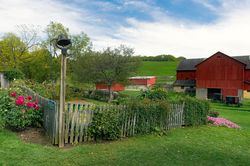 We use the term 'EverVeg®' to describe a wide range of different vegetable plants, all of which share the same characteristics: edible parts of the plant, perenniality and the ease of growing them in home gardens. Here we present this group of vegetables as a whole; we show the importance of Ever Veg® in the overall assortment and present the consumer trends that favour EverVeg®.
We use the term 'EverVeg®' to describe a wide range of different vegetable plants, all of which share the same characteristics: edible parts of the plant, perenniality and the ease of growing them in home gardens. Here we present this group of vegetables as a whole; we show the importance of Ever Veg® in the overall assortment and present the consumer trends that favour EverVeg®.
EverVeg® – in the past and in the future
But what exactly are EverVeg®? As a rule, they are – mostly – old or historic perennial vegetable species that have been deemed obsolete and unproductive with advances in agricultural breeding. Why? Modern agricultural practice, with its overall concept dominated by monoculture and mechanisation/automation, prefers annual crops – ideally even several (vegetable) crops per year because they simply provide more yields over time. Interestingly, this trend is even evident in fruit growing: apple growing has shrunk from a 30-50 year crop to a 10+year crop. One last point to mention is this: the logic of vegetable cultivation and its industrialisation was very much influenced by the emergence of the big seed companies in the 19th century: it was in line with their inner business logic to sell fresh seeds every year again – and not to promote vegetatively propagated vegetables that are logistically difficult to distribute.
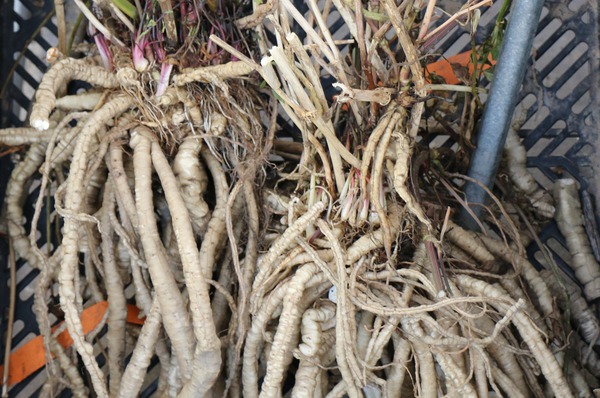
Picture: Skirret, the almost forgotten predecessor of the sugar beet
In principle, there is nothing to be said against this trend towards efficiency and acceleration – after all, agricultural productivity has improved enormously in the last 200 years, but particularly in the last 100 years. In the case of perennial vegetables, however, a re-evaluation will be necessary in the future, even in commercial cultivation: perennial vegetables are perfect for the mixed cropping system and for permaculture, but they are also geared towards sustainability-oriented cultivation. If decentralised, near-consumer cultivation of fresh vegetables is also required in the longer term, especially to feed urban mega-centres, continuously producing vegetable species could offer a further advantage. Finally, it is safe to assume that yield improvements and further optimisation are also possible with these perennial planting systems – after all, we are already seeing this when we test existing varieties and species and then select the highest-yielding ones.
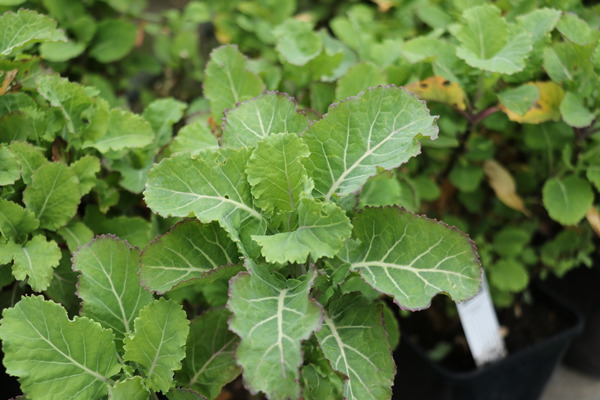
Picture: Tree kale
EverVeg® – perfectly suited for the garden
For the garden, however, the assessment is quite clear: perennial systems for growing and planting simplify the garden – the vegetable garden does not have to be replanted every year. Mixed borders with perennials, woody plants and perennial vegetables lead to planting balances – with less maintenance. Looking at ornamental perennials, which have shown unprecedented growth in the garden market in recent years, also highlights the opportunities for vegetable perennials (because there's nothing different about EverVeg®): the perennial market is growing at a higher single-digit percentage each year (in an overall saturated environment) because perennials are easy. They are easy to plant, easy to grow and easy to transport. Additionally, because of their durability, ornamental perennials and EverVeg® promise a multi-year “payback” on the relatively small investment. These two decisive characteristics, simplicity and perenniality, also solve one of the main problems of the growing customer group of working hobby gardeners: they have – at least subjectively felt – too little time.
Definition of the EverVeges®
We define EverVeg® as vegetable species that are basically characterised by their perenniality and can be harvested in practice in temperate climates for at least five years. Some species can be used even much longer (e.g. our Allium species). We deliberately try to bring together as many different vegetable species with different uses as possible in this vegetable plant group in order to be able to offer a perennial vegetable garden that is as holistic as possible in the long term: with onion plants, salads, root crops, stem vegetables, leafy and fruiting vegetables as well as cabbage species.
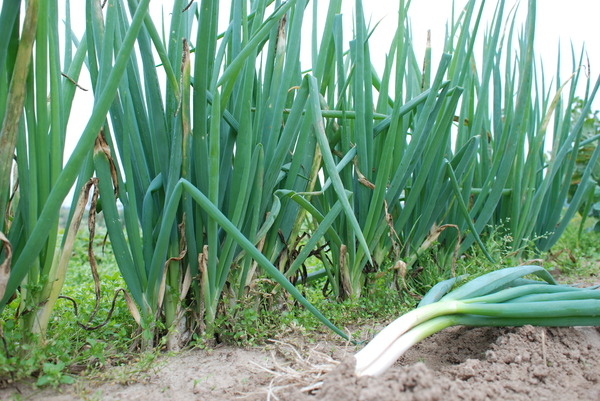
Picture: Welsh onion, one of tour Allium species of the EverVeg®
Overview of the vegetable species in the EverVeg® range
We offer the following plant species in the EverVeg® assortment group. Some may surprise you and some you may have expected, but judge for yourself.
- Rhubarb (Rheum rhabarbarum) – yes, rhubarb is a vegetable, although in Europe it is mainly used in sweetened dishes
- Horseradish (Armoracia rusticana)
- Wasabi (Eutrema japonica) – the real wasabi
- Artichoke (Cynara cardunculus var. scolymus)
- Tree kale (Brassica oleracea var. ramose)
- Skirret (Sium sisarum)
- Liquorice (Glycyrrhiza glabra)
- Onion/leek family
- Welsh onion (Allium fistulosum)
- Garlic chives (Allium tuberosum)
- Tree onion (Allium viviparum or A. cepa var. proliferum)
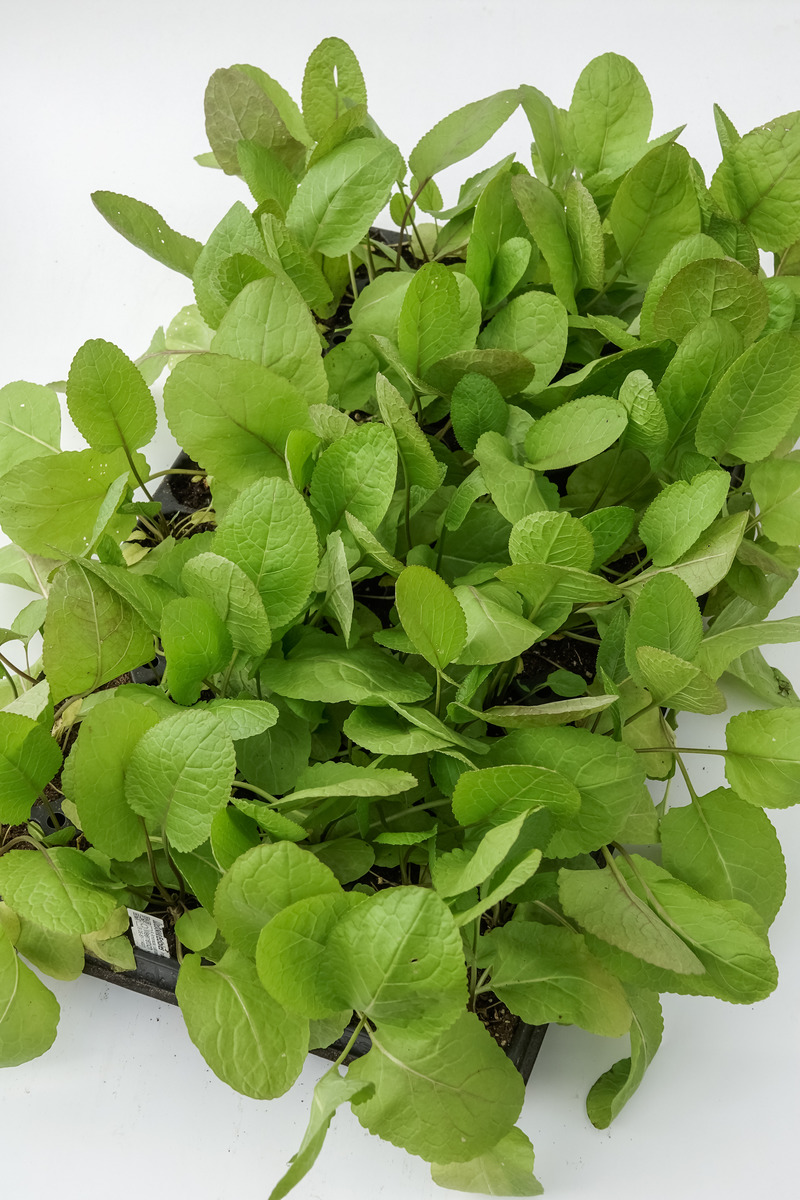
Picture: horseradish young plants from Lubera Edibles
In the breeding department at Lubera, we are also constantly expanding the assortment: we are currently testing a variety of perennial lettuces and also some perennial root crops (as an alternative to our annual potato).
Advantages for the hobby gardener
In the following, we have summarised the most important advantages of the EverVeg®.
- Fresh and healthy vegetables all year round from your own garden
- Continuous self-supply with edible flowers, leaves and roots
- Suitable for both intensive and extensive cultivation; the latter is more and more important in the garden: the hobby gardeners, who practice gardening as an important sideline, harvest and use Eternal Vegetables® when they have the time and desire to do so; in the classic vegetable garden, the cultivation gives them the schedule; if they do not keep on top of it, everything is lost...
- Plants with additional ornamental value (flowers/leaves)
- Perennial and hardy
- Plant once, then harvest for at least five years
- Less acreage and need to rotate; don't have to prepare new beds every year
- Ideal for lazy, intelligent gardeners
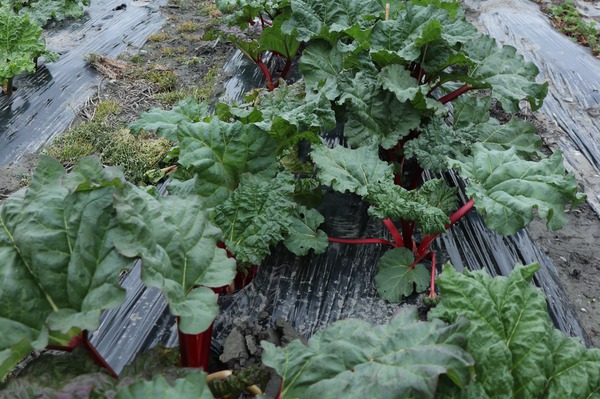
Picture: rhubarb breedind by Lubera® - Rhubarb is probably the best known plant species in the range of EverVeg®
The added value for the consumer – also advantageous for the retailer/producer
The young plants offered by us in the vegetable group EverVeg® are characterised, as already mentioned, by the fact that they are perennial and winter-hardy and, in addition, they can be harvested throughout the year.
At first sight, this means for producers and retailers that they sell plants only once – instead of annually or even several times a year. But this is too short-sighted. The sustainability advantage is also an advantage for the plant producer and retailer.
- Other significance of the product, ideally sold in a 0.5 – 2 L pot; that which lasts and was produced so long, may then also gladly cost something
- Cross-selling of other EverVeg® species, if an entire assortment of EverVeg® is offered, which we strongly recommend
- Development of other and additional customer segments for the vegetable assortment: the intelligent but lazy gardener, the hobby gardener without time, the pleasure gardener (from the garden to the fork), the younger average customer for whom gardening is an important secondary matter (no more, but also no less)
- Longer sales period of the EverVeg®: compared to many seasonal vegetables, EverVeg® including the Allium species can be sold much longer, ideally during the entire sales season
The EverVeg® brand
For the assortment group of perennial vegetables, we have created the protected brand EverVeg®, which is available to all producers and customers who buy our young plants. The term EverVeg® comes with a little wink of the eye, of course, as we all know that nothing is eternal, certainly not a vegetable plant. But as an antithesis to the normal vegetable, which is already gone as soon as it is planted, the EverVeg® brand perfectly demonstrates the advantages of the new plant group. We plan to push the product group and the associated brand further and make it known: with consumer advertising, but above all with advertising in the horticultural trade media.
